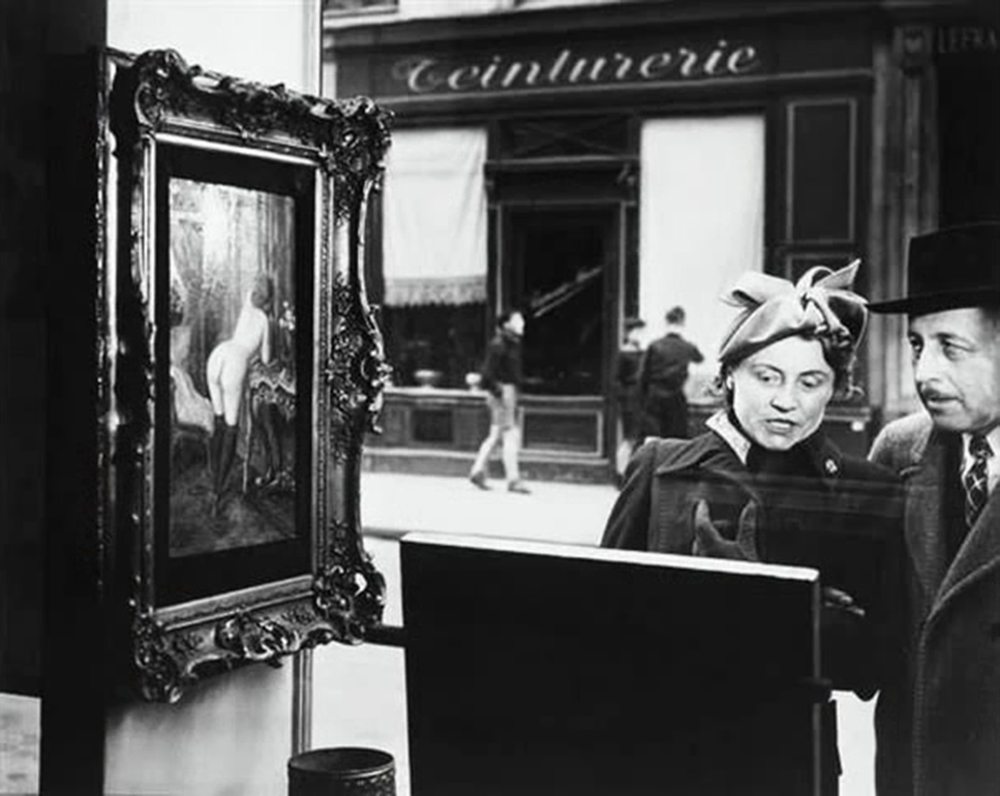Tania Reynolds, Psychology, Florida State University at Tallahassee (FSU Photography Services)
Tania Reynolds has written in The Journal of Experimental Psychology about the ways in which women gossip in order to compete with other women in the romantic arena.
Writing thus, she hopes,
[I]f we change our view of what it means to be a successful female and stop focusing on questions like, ‘Am I attractive to men,’ maybe that would reduce gossiping, make women feel more secure in themselves, and place more value on other qualities, such as intelligence or kindness.
That is a worthy aspiration. But her work is in experimentation, and her results confirm that,
It’s consequential because a woman’s reputation still predicts her access to romantic partners, friendships or professional collaborations, and this research shows gossip can substantially shift social perceptions,” Reynolds said. “People tend to give more weight to negative personal information because they consider it a truer indication of a person’s character than positive details.
However, men, too, use smear campaigns to compete in business and in the pursuit of romance. Reynolds’ question, ‘Am I attractive to men?’ however, discloses a further psychological problem, that of scopophilia – the male gaze. An intriguing photograph by French photographer, Robert Doisneau, is discussed at length by sociologists, film theorists, art historians and visual studies.

Robert Doisneau, Un Regard Oblique, 1948
Writing in Screen, an international journal of film studies, Mary-Ann Doane interprets the picture in the following feminist analysis,
The photograph appears to give a certain prominence to a woman’s look. Both the title of the photograph and its organization of space indicate that the real site of scopophilic power is on the margins of the frame. The man is not centered; in fact, he occupies a very narrow space on the extreme right of the picture. Nevertheless, it is his gaze which defines the problematic of the photograph; it is his gaze which effectively erases that of the woman. Indeed, as subject of the gaze, the woman looks intently. But not only is the object of her look concealed from the spectator, her gaze is encased by the two poles defining masculine axis of vision. Fascinated by nothing visible — a blankness or void for the spectator — unanchored by a ‘sight’ (there is nothing ‘proper’ to her vision — save, perhaps, the mirror), the female gaze is left free-floating, vulnerable to subjection. The faint reflection in the shop window of only the frame of the picture at which she is looking serves merely to rearticulate, en abyme, the emptiness of her gaze, the absence of her desire in representation.
On the other hand, the object of the male gaze is fully present, there for the spectator. The fetishistic representation of the nude female body, fully in view, insures a masculinization of the spectorial position. (Doane, 1982)
A much misunderstood, but often quoted, phrase from French philosopher Jean-Paul Sartre is, ‘Hell is other people.’
What Sartre meant by this can be gleaned from his much discussed example of the voyeur. When the voyeur looks at the world as if through a keyhole, he sees the world as other.
He then hears footsteps coming toward him down the corridor. It is when he becomes aware that for them he is also an ‘other’, that he is constrained by the thing he becomes for them. And so, his freedom is impaired.
With particular reference to the male gaze, as exemplified in Doisneau’s photograph, it exerts patriarchal power over women. She sees herself now as something to be gazed upon; and so acts accordingly. It is this acting in accordance with the demands of the other which strips her of her freedom.
Reynolds, we might think, could use some philosophical psychology to augment her work and to better secure her conclusions; and the future use of those conclusions.
References: Mary Ann Doane; ‘Film and the Masquerade: Theorising the Female Spectator,’ Screen, Volume 23, Issue 3-4, 1 September 1982, Pages 74–88
________________________________________________________________________
Idle talk or fierce competition? Research finds women use gossip as a weapon in rivalries

CREDIT: FSU PHOTOGRAPHY SERVICES
TALLAHASSEE, Fla. — New research from Florida State University, investigating how women use gossip to compete in the realm of romance, offers insights that aim to reduce bullying and enhance women’s friendships.
Tania Reynolds, a doctoral student in FSU’s Department of Psychology, found adult women often use the same gossiping techniques as adolescent girls to tarnish another woman’s reputation and try to gain an advantage in romantic relationships.
“It’s consequential because a woman’s reputation still predicts her access to romantic partners, friendships or professional collaborations, and this research shows gossip can substantially shift social perceptions,” Reynolds said. “People tend to give more weight to negative personal information because they consider it a truer indication of a person’s character than positive details.”
Reynolds led five studies that found women were more likely to spread negative information about a woman perceived as a threat to their romantic prospects. Women strategically used gossip to target a rival who posed either a direct or indirect threat.
A direct threat included another woman trying to steal a boyfriend. Indirect threats involved women who were otherwise innocent but physically attractive or provocatively dressed.
For example, one study directed an attractive woman to wear two very different clothing styles and, in each case, share the same prurient details about her sexual activity to female participants, even though the disclosure could be devastating to her reputation.
Reynolds discovered that women who heard this damaging information were more likely to spread it when the speaker wore a low-cut shirt flaunting cleavage than when she dressed conservatively.
Her findings, published in the Journal of Experimental Social Psychology, also discovered highly competitive women spread negative information about their same-sex peers indiscriminately.
“This pattern suggests competitive females may be the primary perpetrators of adolescent bullying and then harmful workplace rumors,” Reynolds said.
In the age of social media, using gossip as a weapon is an easy, potentially powerful technique to harm someone’s reputation. Reynolds hopes shining a light on the behavior is the first step to curtailing it.
“If school counselors know the predictors of female bullying, and they understand it manifests in subtle ways like gossiping, then they’ll be better equipped to detect it and deal with it,” Reynolds said. “This research shows adult women demonstrate similar behaviors of adolescent bullies, and manipulating reputations can have serious consequences.”
The research confirmed consequences can be far-reaching because people often choose friends and romantic partners based on reputations. The study found gossip can make female targets seem less moral, untrustworthy or someone to be avoided.
“Reputation-harming information is not spread just by the people we interact with,” Reynolds said. “In a modern environment with social media, this information can spread much more broadly and affect others’ interpretations of us, even if we’ve never met. This issue is more important than ever.”
This kind of female romantic rivalry is documented throughout history and across cultures. Past research has found examples of women competing over men’s romantic commitment in 91 percent of 137 cultures.
Researchers concluded from historical analyses that the stakes were high for women to attract and retain high-quality men. Data showed fathers of high social status, who remained married and active in their children’s lives, produced healthier children who were more likely to survive into adulthood compared to low-income fathers who did not commit to their children’s mothers.
“Historically, a woman’s romantic partner was a strong predictor of how well the family fared,” Reynolds said. “Today, it may be less predictive because women have better access to education, employment and child support. But going from a dual to single-income household still reduces resources available to children, and divorce can be incredibly stressful. So, attracting and retaining an invested male partner still influences important outcomes for women and their families.”
One unexpected finding of the study, Reynolds said, was that sometimes women shared gossip about an attractive woman, perceived as a threat, whether they liked her or not.
“That makes me think women don’t really know they’re doing it, or they’re not doing it maliciously,” Reynolds said. “If you can spread gossip without seeming mean, or if you phrase it with concern, such as, ‘I am worried about her because she’s not making good choices,’ then the gossiper is perceived as a better friend, compared to one who gossips maliciously. She can preserve her reputation while still harming a rival’s. That suggests concerned gossip is an effective tactic, and women may not even consciously know they’re doing it.”
Reynolds hopes her work enhances women’s same-sex friendships by raising awareness of gossiping tendencies. If the findings prompt women to pause and consider whether a friend would want certain details disclosed, then that moment of reflection could help prevent the kind of loyalty breaches that undermine friendships.
Most importantly, she believes the findings can elevate a discussion about women’s value outside the realm of romance and physical appearance.
“I hope we can create a new form of success for women that has nothing to do with whether they have romantic partners or whether they’re physically attractive,” Reynolds said. “If we reduce the emphasis on competition for romance and better appreciate that a woman does not need a man to be successful, if we change our view of what it means to be a successful female and stop focusing on questions like, ‘Am I attractive to men,’ maybe that would reduce gossiping, make women feel more secure in themselves, and place more value on other qualities, such as intelligence or kindness.”
###

Ed studied painting at the Slade School of Fine Art and later wrote his PhD in Philosophy at UCL. He has written extensively on the visual arts and is presently writing a book on everyday aesthetics. He is an elected member of the International Association of Art Critics (AICA). He taught at University of Westminster and at University of Kent and he continues to make art.




















